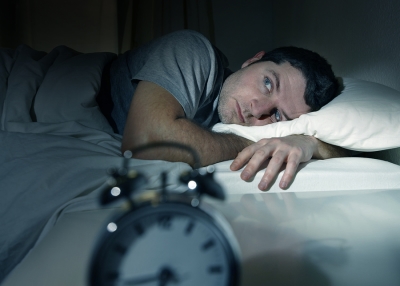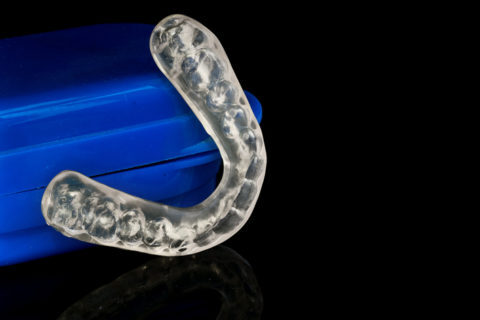HOW BRUXISM AFFECTS YOUR SLEEP
Posted on Apr 13, 2015
The importance of a good night’s rest cannot be underestimated. Along with a nutritious diet and regular exercise, healthcare providers often recommend a healthy sleep schedule as part of overall wellness. If you suffer from bruxism in Belmont, though, it can frustrate your efforts to get sound sleep. However, bruxism is a treatable problem. With the help of your dentist, you can learn practices that might ease your condition, as well as get fitted with a mouthguard to protect your teeth. These measures can lessen the effects of bruxism and the ways in which it can impact your sleep.
The importance of a good night’s rest cannot be underestimated. Along with a nutritious diet and regular exercise, healthcare providers often recommend a healthy sleep schedule as part of overall wellness. If you suffer from bruxism in Belmont, though, it can frustrate your efforts to get sound sleep. However, bruxism is a treatable problem. With the help of your dentist, you can learn practices that might ease your condition, as well as get fitted with a mouthguard to protect your teeth. These measures can lessen the effects of bruxism and the ways in which it can impact your sleep.
Head Pain
A headache can make it difficult to focus at work and enjoy time with loved ones. It can also negate the restorative benefits of a good night’s sleep. Dentists note that one of the most common side effects of bruxism is head pain. As you sleep, you may be unknowingly putting hours of pressure on your jaw joint. This pressure can have a radiating effect, which can culminate in a daily morning headache. Waking up with head pain can make it difficult to feel rested and lead to ongoing fatigue as well.
A headache can make it difficult to focus at work and enjoy time with loved ones. It can also negate the restorative benefits of a good night’s sleep. Dentists note that one of the most common side effects of bruxism is head pain. As you sleep, you may be unknowingly putting hours of pressure on your jaw joint. This pressure can have a radiating effect, which can culminate in a daily morning headache. Waking up with head pain can make it difficult to feel rested and lead to ongoing fatigue as well.
Anxiety
Bruxism is typically the sign of an underlying problem such as anxiety. However, the complications of bruxism can sometimes aggravate this problem. If you commonly wake up with jaw pain, a headache, or another bruxism symptom, it may make it difficult to have a stress-free and productive day. This side effect can raise anxiety levels, which can then contribute to the unconscious need to clench and grind your teeth at night.
Bruxism is typically the sign of an underlying problem such as anxiety. However, the complications of bruxism can sometimes aggravate this problem. If you commonly wake up with jaw pain, a headache, or another bruxism symptom, it may make it difficult to have a stress-free and productive day. This side effect can raise anxiety levels, which can then contribute to the unconscious need to clench and grind your teeth at night.
Sleep Apnea
Many people suffer from sleep apnea, another nocturnal condition that can impede restful slumber. When a person has sleep apnea, he might wake up dozens of times during the night because of air obstruction that prevents the flow of oxygen into the lungs. Dentists have found that sleep apnea and bruxism often present in the same patients. So not only are patients suffering from the effects of teeth grinding, but also the complications of repeated respiratory distress. When you talk to your dentist about your bruxism issues, he can also evaluate your condition to see if you might suffer from sleep apnea as well. With appropriate treatment, though, you can soon be enjoying uninterrupted and restful slumber on a regular basis.
Many people suffer from sleep apnea, another nocturnal condition that can impede restful slumber. When a person has sleep apnea, he might wake up dozens of times during the night because of air obstruction that prevents the flow of oxygen into the lungs. Dentists have found that sleep apnea and bruxism often present in the same patients. So not only are patients suffering from the effects of teeth grinding, but also the complications of repeated respiratory distress. When you talk to your dentist about your bruxism issues, he can also evaluate your condition to see if you might suffer from sleep apnea as well. With appropriate treatment, though, you can soon be enjoying uninterrupted and restful slumber on a regular basis.

Jun 22, 2022|Bruxism
Do you ever find yourself grinding your teeth at night? You may not even be aware that you’re doing it, but teeth grinding (or bruxism) is a…
How much do you know about teeth grinding? Known as bruxism, it’s a condition that causes people to grind their teeth or clench their jaws. This…

